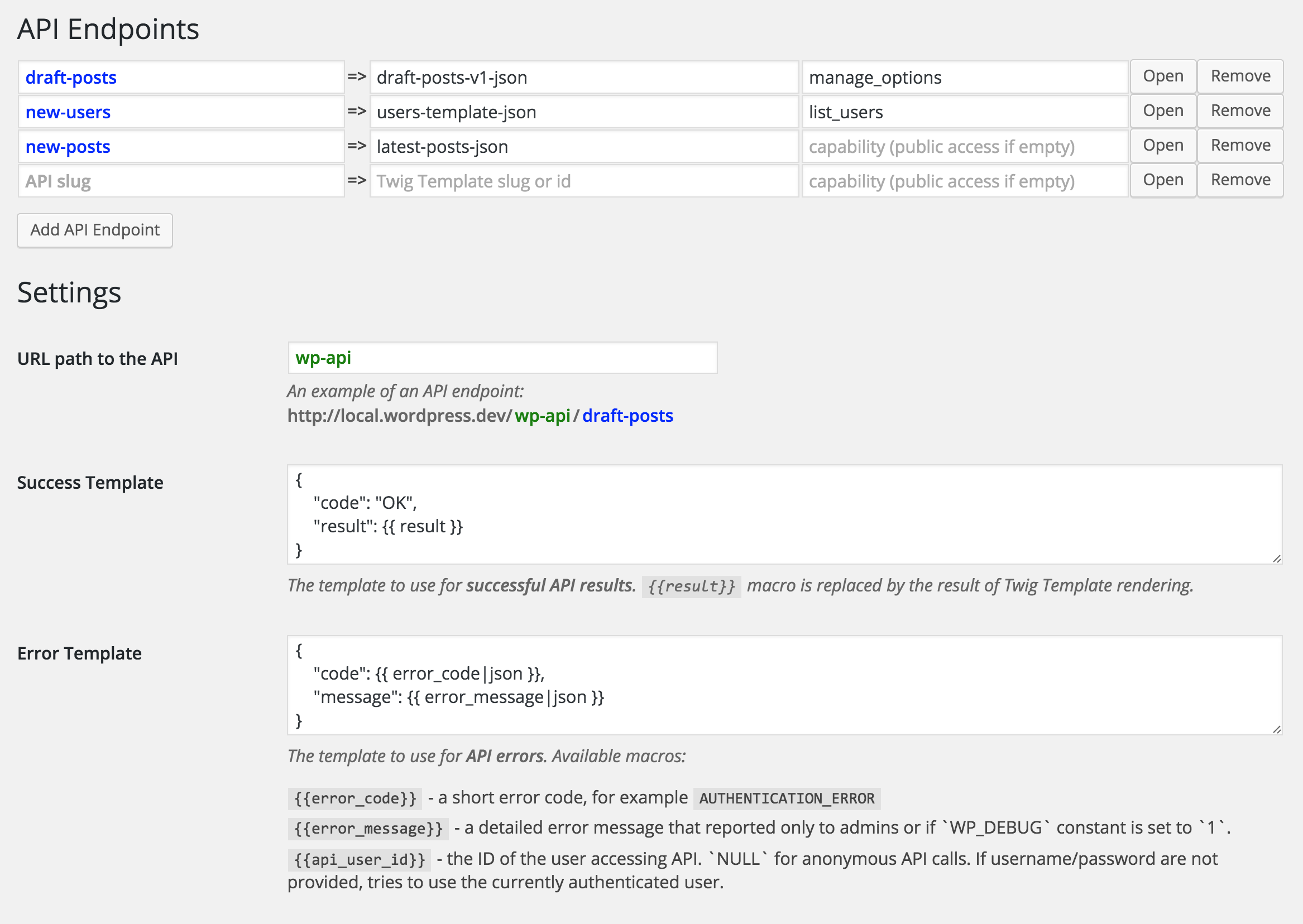API Endpoints Wordpress Plugin - Rating, Reviews, Demo & Download

Plugin Description
Choose which of your site’s data to make available via WordPress API
and in which format.
Features
- Customize API URLs:
http://mywordpress.com/my-api/name1– change my-api and name1 in the plugin settings - Set minimal capability permission individually for every API endpoint
- Customize HTTP headers
- Use any data from your sites’s MySQL database: posts/pages, custom posts, comments, settings, users, site options, post metadata, users, drafts, activity and much more
- Turn any local file into an API (CSV, JSON, XML, you name it)
- Fetch any data from 3rd party APIs and turn into your own API
- Boost API speed with the caching system out of the box
- Output API in any format, including, but not limited to, JSON, XML, RSS/ATOM, YAML and HTML.
- Get full control over the API output by using a simple template language.
- Two dedicated templates: 1) for successful API calls and 2) for API failures (e.g. authentication error)
- Intelligent template editor with code highlighting and full screen mode
This is a free add-on to the
Twig Anything WordPress plugin.
Screenshots

The slick API Endpoints configuration panel with settings for error/success templates, URL names, capability roles set individually per API endpoint, and templates to use for each API.

HTTP headers configuration: by default, anti-cache headers are set, but you can add any headers depending on what format you want your API to output. It hints you about headers to use for most popular formats: JSON, XML, RSS and YAML.

An API endpoint in JSON format that gets information from a local CSV file and converts it into API.

Insufficient permissions when calling a protected API with a wrong username/password



